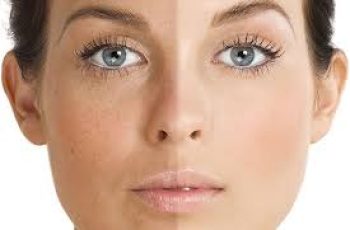
The Best Eczema Cleansers
Cleansers, face washes and body washes play an import role in treating eczema and atopic dermatitis because they have a big effect on the skin barrier. Eczema cleansers should protect and repair the skin barrier with fatty acids and soothing and calming the skin with anti-inflammatory ingredients. They should not have strong detergents that hurt the skin barrier.
In this blog I will share the same information about how to properly cleanse eczema-prone skin that I give my dermatology patients.
Knowing your Baumann Skin Type is the best way to shop for a facial skincare routine, so if you have not taken the skin care routine quiz- you should.
Eczema Soap, Cleansers, and Washes
Good eczema cleansers should protect and repair the skin barrier, decrease harmful bacteria, and deposit soothing lipids on the skin. Eczema safe cleansers can help prevent skin dehydration, irritation and inflammation, and hyperpigmentation.
There are several types of eczema cleansers which I will discuss in this blog. I have eczema myself so I will share what I have learned over the years of battling eczema myself and treating patients with eczema.
Face Washes for Eczema
Creamy Eczema Cleansers
The best facial cleansers for eczema are creamy cleansers that deposit lipids (fatty acids) on the skin. These cleansers often contain oils that give them a creamy texture.
Here are some of best creamy cleansers that are safe for eczema prone atopic skin and help protect the skin’s moisture barrier:
Meder Beauty Nrj-Net Revitalising Cleansing Mask- helps stabilize you rmicrobiome while protecting the skin barrier. This is vegan.
CeraVe Hydrating Cream to Foam Cleanser for Normal to Dry Skin- This is the most affordable eczema face and body wash.
VMV HYPOALLERGENICS Red Better Deeply Soothing Cleansing Cream-This is the best eczema wash if you have allergies because it is free of formaldehyde, fragrance and allergenic preservatives. Wonderful for babies with atopic skin.
Zerafite Soothing and Calming Cleanser is barrier safe and deposits soothing lipids on the skin.
Gel Eczema Cleansers
I personally prefer the creamy cleansers to treat eczema on the face, but if you prefer a gel like consistency, here are some cleansers with minimal detergents or skin safe surfactants that can be used when you have atopic dermatitis:
PCA Skin Daily Cleansing Oil
$46.00
Add to Cart
Medature Plantract Cleansing Gel
$11.67
Add to Cart
Replenix Green Tea Gentle Soothing Cleanser
$38.00
Add to Cart
Revision Skincare Gentle Cleansing Lotion
$50.00
Add to Cart
CeraVe Hydrating Cream to Foam Cleanser for Normal to Dry Skin
$5.49
Out of Stock
CeraVe Hydrating Facial Cleanser for Normal to Dry Skin
$5.49
Out of Stock
La Roche-Posay Toleriane Dermo Milky Cleanser
$25.99
Add to Cart
Murad Renewing Cleansing Cream
$42.00
Add to Cart
Neocutis NEO CLEANSE Gentle Skin Cleanser
$40.00
Add to Cart
Obagi-C FX System C-Cleansing Gel
$49.00
Add to Cart
PCA Skin Daily Cleansing Oil
$46.00
Add to Cart
Medature Plantract Cleansing Gel
$11.67
Add to Cart
Replenix Green Tea Gentle Soothing Cleanser
$38.00
Add to Cart
Revision Skincare Gentle Cleansing Lotion
$50.00
Add to Cart
CeraVe Hydrating Cream to Foam Cleanser for Normal to Dry Skin
$5.49
Out of Stock
CeraVe Hydrating Facial Cleanser for Normal to Dry Skin
$5.49
Out of Stock
La Roche-Posay Toleriane Dermo Milky Cleanser
$25.99
Add to Cart
Murad Renewing Cleansing Cream
$42.00
Add to Cart
Neocutis NEO CLEANSE Gentle Skin Cleanser
$40.00
Add to Cart
Obagi-C FX System C-Cleansing Gel
$49.00
Add to Cart
PCA Skin Daily Cleansing Oil
$46.00
Add to Cart
Medature Plantract Cleansing Gel
$11.67
Add to Cart
Replenix Green Tea Gentle Soothing Cleanser
$38.00
Add to Cart
Revision Skincare Gentle Cleansing Lotion
$50.00
Add to Cart
CeraVe Hydrating Cream to Foam Cleanser for Normal to Dry Skin
$5.49
Out of Stock
CeraVe Hydrating Facial Cleanser for Normal to Dry Skin
$5.49
Out of Stock
La Roche-Posay Toleriane Dermo Milky Cleanser
$25.99
Add to Cart
Murad Renewing Cleansing Cream
$42.00
Add to Cart
Neocutis NEO CLEANSE Gentle Skin Cleanser
$40.00
Add to Cart
Obagi-C FX System C-Cleansing Gel
$49.00
Add to Cart
Fragrance-free Eczema Cleansers
Many people with atopic skin have allergies to fragrance. Sometimes fragrances such as limonene are not listed on the label as fragrances because they may be called a “fragrance mix” or a preservative. These are fragrance- free cleansers safe for eczema- prone skin:
Body Wash for Eczema
This eczema body wash was developed by dermatologists who recognized that many eczema suffers end up with skin infections. The ingredient sodium hypochlorite is an antimicrobial that helps kill skin bacteria but is gentle enough to be used in atopic skin.
Best Natural Soap for Eczema
Despite my best efforts, I could not find any natural eczema soaps that I would recommend. The problem is that many botanical ingredients that are in natural and organic products cause skin allergy. Most soaps are irritating to eczema prone skin. If you want a natural option, consider a cleansing oil.
There are many causes of eczema, but one cause I often see in my patients using the wrong soap or cleanser for the Baumann Skin Type. The best soap for eczema is not a soap! Many soaps damage the skin barrier further and worsen eczema. Instead of soap- choose a non soap eczema cleanser that has soothing fatty acids and soothing and calming ingredients.
Best Cleansing Oils for Eczema
Best Cleansing Oils for Eczema
Cleansing oils can also be used for eczema, and are extremely beneficial when used as part of a double cleansing routine as they lift away dirt and impurities without drying the skin. Cleansing oils are a better eczema cleanser than soaps because oils are full of soothing fatty acids.
Look for oils like argan oil, glycine soja oil, grapeseed oil, almond oil, safflower oil and coconut oil, which are all highly moisturizing, and each offer unique additional skin benefits:
Argan oil soothes the skin and heals infection and wounds
Glycine soja oil protects the skin from damage and promotes the growth of healthy skin cells
Grapeseed oil helps to improve the skin’s elasticity
Almond oil is a well-known treatment for dry skin and also reduces the appearance of scars
Safflower oil prevents flaking
Coconut oil reduces inflammation and provides antimicrobial properties.
Here are some choices:
Bioderma Atoderm Shower Oil
$8.99
Add to Cart
ISDIN Essential Cleansing Oil
$40.00
Add to Cart
La Roche-Posay Lipikar AP+ Gentle Foaming Cleansing Oil
$17.99
Add to Cart
ClarityRx Cleanse Daily Vitamin-Infused Cleanser
$47.00
Add to Cart
PCA Skin Daily Cleansing Oil
$46.00
Add to Cart
Nuxe Very Rose Delicate Cleansing Oil
$27.00
Out of Stock
Bioderma Atoderm Shower Oil
$8.99
Add to Cart
ISDIN Essential Cleansing Oil
$40.00
Add to Cart
La Roche-Posay Lipikar AP+ Gentle Foaming Cleansing Oil
$17.99
Add to Cart
ClarityRx Cleanse Daily Vitamin-Infused Cleanser
$47.00
Add to Cart
PCA Skin Daily Cleansing Oil
$46.00
Add to Cart
Nuxe Very Rose Delicate Cleansing Oil
$27.00
Out of Stock
Bioderma Atoderm Shower Oil
$8.99
Add to Cart
ISDIN Essential Cleansing Oil
$40.00
Add to Cart
La Roche-Posay Lipikar AP+ Gentle Foaming Cleansing Oil
$17.99
Add to Cart
ClarityRx Cleanse Daily Vitamin-Infused Cleanser
$47.00
Add to Cart
PCA Skin Daily Cleansing Oil
$46.00
Add to Cart
Nuxe Very Rose Delicate Cleansing Oil
$27.00
Out of Stock
What lipids are and why they are in dermatologist recommended eczema cleansers:
Lipids are the skin’s natural fats is an umbrella term for a few kinds of fats. When discussing the skin barrier, the relevant lipids are fatty acids, ceramides, and cholesterol. Maintaining a good ratio of these lipids is crucial for treating eczema.
Fatty acids help to maintain the strength of the skin barrier
Fatty acids lock in moisture while locking out allergens, irritants and bacteria
Unsaturated fatty acids have skin soothing abilities while saturated fatty acids are hydrating.
I have eczema which is why I am so interested in skin barrier research and finding the best skin care products for atopic dermatitis. To keep my eczema under control, I use one of these face washes to prevent eczema flares:
Cera Ve Hydrating Facial Cleanser
La-Roche Posay Toleriane Dermo Milky Cleanser
PCA Skin Daily Cleansing Oil
Zerafite Creamy Cleanser
Why Does The Cleanser You Choose Matter When You Have Eczema?
Eczema, also called atopic dermatitis, is a skin disease caused by an injured skin barrier, causing the skin to become red, itchy and inflamed. In eczema, the skin barrier is impaired and does not hold on to moisture and water properly, usually as the result of genetics or environmental issues such as using the wrong body wash or face wash. The detergents in soaps and cleansers can strip important fatty acids from the skin leading to dehydration and inflammation of the skin.
Once inflammation gets started, it turns on many different inflammatory pathways and is hard to turn off. If you have a darker skin type, then inflammation can cause pigmentation leading to post inflammatory hyperpigmentation.
Can I Use Essential Oils For Eczema?
I do not advise using essential oils for eczema as they contain only the fragrance from the oil and not the essential, hydrating fatty acids. Essential oils do not have fatty acids.
In fact, essential oils often cause an allergic reaction when used in skin conditions with an impaired skin barrier, like eczema, rosacea or psoriasis. I recommend using a real oil like argan oil or safflower oil if you want an organic cleanser for your eczema, and avoid essential oils entirely.
There are a couple of specific essential oils that happen to be decent for eczema treatments because they contain barrier repairing fatty acids like linoleic acid.
Rose oil is actually considered anti-inflammatory and antioxidant in some concentrations. It cannot in isolation repair your eczema because it needs to be combined with cholesterol and ceramide containing barrier moisturizers.
What Cleansers Should You Avoid If You Have Eczema?
In addition to essential oils, I do not advise using foaming cleansers that have a lot of bubbles and suds. The detergents that cause the foaming will strip essential fats from the skin that protect the skin barrier and keep the skin hydrated.
I also do not recommend using bar soap or any heavily fragranced soaps, as these will strip the skin of moisture and further irritate the skin.
Also avoid mechanical exfoliants like facial scrubs that can irritate the skin.
What Laundry Detergent Should I Use to Clean My Clothing If I Have Eczema?
The most suitable laundry detergents for sensitive skin like eczema are Tide Free or All Free detergents, or any other laundry detergent that is fragrance-free. All heavily fragranced detergents should be avoided, and while organic laundry detergents may seem like the best option, their ingredients can actually be an eczema trigger so we advise that you use organic detergents with caution.
Closing thoughts
Selecting the best cleanser for eczema can be easy to do provided you follow our dermatologist advice to avoids suds and bubbles. Creamy cleansers are the preferred choice for eczema because they are gentle, moisturizing, and help to protect the important lipids in the skin barrier. Always pair your eczema cleanser with a barrier repair moisturizer.
Let us help you find the best eczema face and body cleansers for your Baumann Skin Type!


